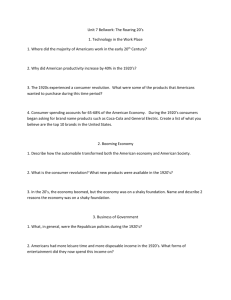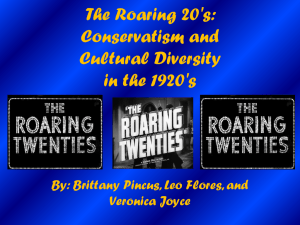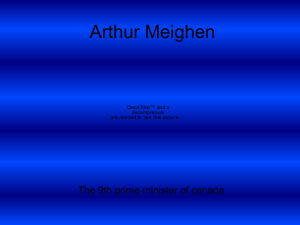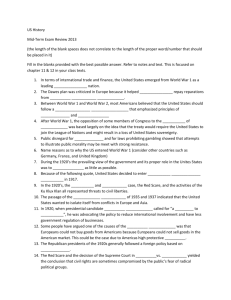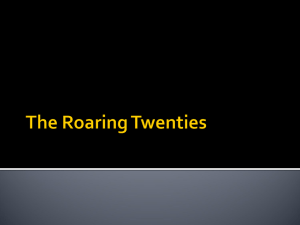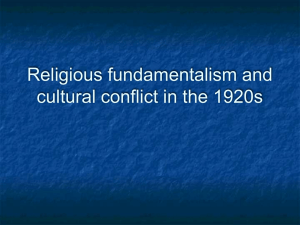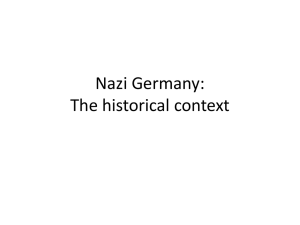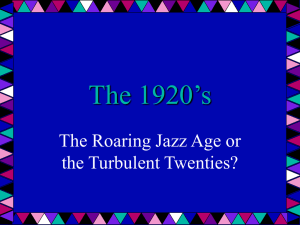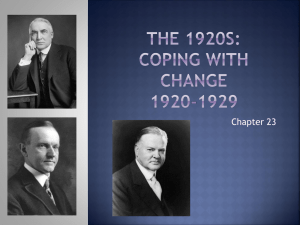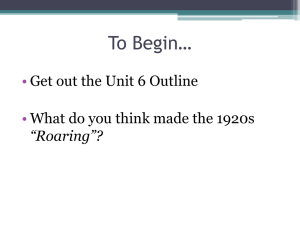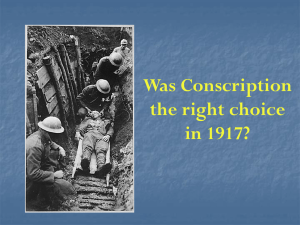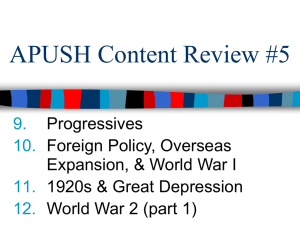Canada and Politics : 1920s
advertisement
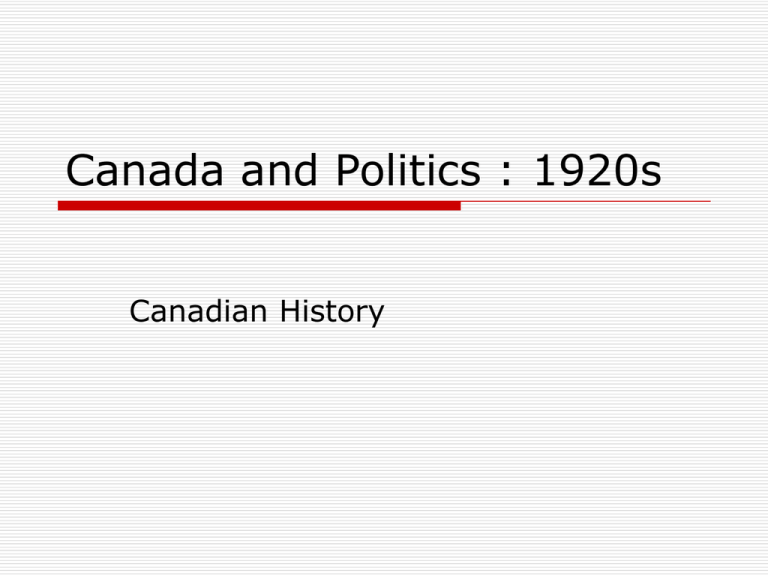
Canada and Politics : 1920s Canadian History End of the War What was Canadian politics like at the end of World War 1? By 1919 Canada had become bitterly divided because of political moves during World War 1. Military Service Act. What happened to Wartime Leaders? Two previous political party leaders before the 1920s were: Robert Borden: PM who introduced Conscription. (Conservative Party) Sir Wilfred Laurier: Former PM, French Canadian. (Liberal Party) Sir Wilfred Laurier died in 1919. By 1919 Robert Borden had become so exhausted his doctor ordered him to resign. 1920s Dominated by Two July 1920 Borden steps down and gives leadership to Arthur Meighen. 9th Prime Minister……for less then a year. Have you ever heard of Arthur Meighen? William Lyon Mackenzie King. Becomes leader of the Liberal party. Bitter rivals who attended University of Toronto together. The only thing that they had in common was they hated each other. King the Conciliator Conciliator: To gain someone’s friendship. Came from prominent Ontario family. Had the ability to bring ‘warring parties’ together. Understood that Quebec was important to hold onto power but keep Canada united. Internationally recognized labour expert: found a balance between worker’s needs and business. Known as a mediator and social reformer. Meighen the Mean?? Came from a modest, rural family. Former schoolteacher. Teaching days were short lived because he was so harsh and strict. Through talent and hard work he became a successful lawyer. His combative and brilliant debating style created many enemies. Cold and Arrogant. 1920 Elections Meighen faced an uphill battle during the 1920 elections. WHY? In part because of his party and World War 1. Was formerly a justice minister who smothered anti-war protests. 1919: Crushed Winnipeg General Strike which we will look at later. Unions were wrong. 1920s Election Another party entered the scene in 1920: The Progressive Party, made of farmers from Ontario and the West and ex-Liberals. Conservatives won 50 seats, Progressives won 65 seats and the Liberals won 116 seats. King became Prime Minister and remained PM for 22 out of the next 27 years. King as Prime Minister Walked a political tight-rope where he tried to please everyone but ended up pleasing nobody in the end. For example, he lowered tariffs to appease Progressives, but not enough to anger industrialists. 1925 election King lost majority but teamed up with Progressives to maintain power. (Con-116, Lib-101, Pro-24) King-Byng Affair In 1926 King resigns because of a scandal. Key terms: Dissolution of parliament- Parliaments sit for a maximum for 5 years but can be disbanded or taken apart before that with the support of the governor general.
